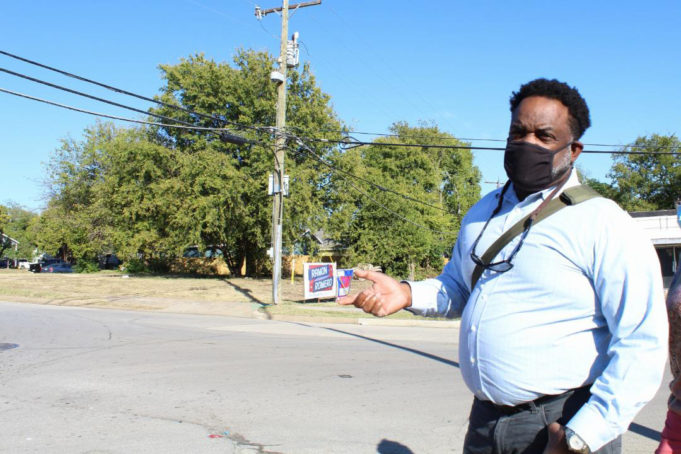Government accountability is impossible without transparency. The single most powerful tool for fighting governmental corruption, nepotism, and waste at the local and state levels is the Texas Public Information Act, which compels government departments to release a wide range of documents upon request. In Fort Worth, public information requests (also known as open records requests) are on the rise. In 2017, 9,513 public information requests were filed in Fort Worth. So far this year alone, the city said it has received 14,868 open records requests.
While requests through the public information act are enforceable by state law, the Secretary’s Office of Fort Worth, which handles open records, and the Fort Worth police department have several means of keeping important public information out of the hands of civic-minded locals and journalists. Electronic information can be deleted, for example. Fort Worth police department deletes an officer’s emails upon retirement. Less information for the public or the press means less liability (and accountability) for police.
Many open records requests are sent for the purpose of gathering information that would be embarrassing or even incriminating for elected officials or government employees. Recent examples include open records requests for the locations of publicly viewable police cameras and a list of all “incidents and infractions committed by Fort Worth police officers.” The former was sent by local criminal defense lawyer Leon Reed (“ Public Safety or Over-Policing?” Nov. 19) and the latter by the grassroots group No Sleep Until Justice (“Public Disservice?” Nov. 11).
Both requests were initially met with a request from the secretary’s office for a legal brief from the state attorney general. In short, city staffers state which loophole in the public information act allows the city to withhold all or part of the requested information. Those letters are sent via snail mail and can take months to resolve.
In response to Reed’s request, the city argued that revealing the locations of cameras that are left in plain sight could compromise police work. The AG agreed, and Reed is refiling his request. The AG did not agree with the city’s request to block the release of active officers who committed offenses. Thomas Moore, president of No Sleep Until Justice, said he received a bill for around $1,800 and a demand that half the fee be paid within one week to cover the cost of compiling the information. Moore’s group eventually received a $213.75 refund after paying the request in full.
Even after the names of offending officers were released one month ago, Moore remains uncertain if the list is complete. The process of following the ping pong of legal arguments between city lawyers and AG staff makes the process convoluted, he said. We agree. When the AG does reply (again, via snail mail), the responsive documents are obscured in jargon, references to past court cases, and legalese that would leave any non-lawyer’s head spinning.
Of open records requests received between 2017 and 2020, Fort Worth’s secretary’s office requested legal briefs for 11%, 12%, 9%, and 9% respectively. Although the percentage of open records that are blocked every year has gone down over four years, the total number of requests that are appealed to the AG has increased due to the growing number of requests the city receives. Based on our experience filing open records requests and feedback from reform-minded locals, the requests that are flagged for legal briefs are often the most critical for holding police and city officials accountable to the citizens of Fort Worth.
The most recent comprehensive look into Texas’ open records practices was undertaken by the Associated Press in 2017.
The number of open records “denials has been soaring,” reporter Terri Langford said. “In the fiscal year that ended in August 2001, governments forwarded about 5,000 denied record requests to the attorney general’s office for review. That number had jumped to more than 27,000 in 2016. Much of the increase has occurred in the last decade. The overall number of denials is actually larger than the data indicate. More than 80 agencies and local governments have gotten permission from the attorney general to automatically deny certain kinds of requests, such as those that reveal a person’s birthdate.”
The state’s top legal authority, indicted Attorney General Ken Paxton, heads an office that is tasked with resolving disputes over open records requests. Reporting from a slew of prominent publications has documented an attorney general who doubles down on lies while engaging in whistleblower retaliation. Already facing felony charges of securities fraud, Paxton recently fired two top aides, David Maxwell and Mark Penley. Claiming they’re the victims of whistleblower retaliation, they are suing. On Nov. 2, Maxwell and Penley reported that they were subjected to hours of “irregularities, harassment, and retaliation” under Paxton’s leadership. The aides said they were pressured to resign. They refused and were subsequently fired.
City leaders across Texas are increasingly willing to disregard the spirit of the state’s public information act by placing personal interests above the common welfare. There’s no help coming from the top, where a self-destructing Paxton is more worried about fighting culture wars than fulfilling the duties of his office. Until government leaders make good faith efforts to release information, even when it may be embarrassing, reporting on bogus open records rejections may need to become a focus of this paper and others.












